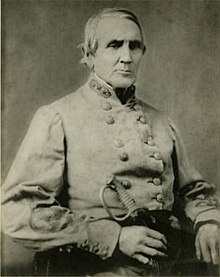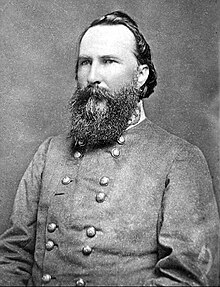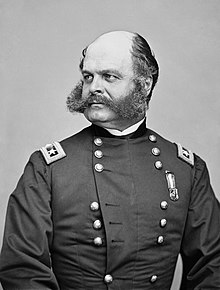
Thomas Neville Waul was a Confederate States Army brigadier general during the American Civil War. Before the Civil War, he was a teacher, lawyer, judge and planter. He served for a year in the Provisional Confederate Congress from Texas. He was captured at the fall of Vicksburg, Mississippi, on July 4, 1863, and exchanged in October 1863. After his promotion, Waul served in the Confederate Trans-Mississippi Department. He was wounded at the Battle of Jenkins' Ferry. After the Civil War, Waul was a farmer and lawyer who lived in Texas until his death at age 90.

Tyree Harris Bell was a Confederate States Army brigadier general, during the American Civil War.
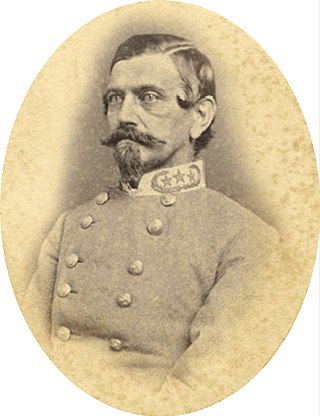
James Cantey was a Confederate States Army brigadier general during the American Civil War. He was a lawyer, slave owner, state legislator in South Carolina and officer in the Mexican–American War, and a slave owner in Alabama both before and after the war.
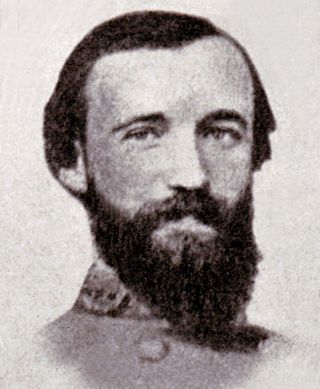
Victor Jean Baptiste Girardey was a Confederate States Army officer during the American Civil War. He was promoted from Captain to temporary Brigadier General less than a month before his death in battle. Girardey had served as a staff officer from the beginning of the war until August 3, 1864. Then, he was promoted to temporary brigadier general, to rank from July 30, 1864, and assumed command of Ambrose R. Wright's former brigade on the Darbytown Road on the eastern end of the defenses of Richmond, Virginia. On August 16, 1864, during the Second Battle of Deep Bottom, Girardey was killed in action near Fussell's Mill in Henrico County, Virginia.
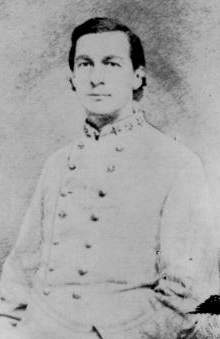
Alexander William Campbell, was a Confederate States Army brigadier general during the American Civil War. He was a lawyer in Tennessee before and after the war, mayor of Jackson, Tennessee, 1856, and an unsuccessful candidate for the Democratic Party nomination for governor of Tennessee in 1880.

George Blake Cosby, was a Confederate States Army Brigadier General during the American Civil War. He was an 1852 graduate of the United States Military Academy and served in the United States Army until May 10, 1861. After the war he farmed in California, worked as aa sutler in Oregon and held several government positions.

Brigadier-General Nathaniel Harrison Harris was a senior officer of the Confederate States Army who commanded infantry in the Eastern theater of the American Civil War.

Thomas Harrison was a Confederate States Army brigadier general during the American Civil War. He had a law practice in Waco, Texas, after moving to Texas in 1843. He was a Mexican–American War veteran and Texas state legislator before the war. After the war, he was a district judge at Waco and was a Democratic Party politician and Presidential elector.

Edward Higgins was a Confederate States Army brigadier general during the American Civil War. Before the war, he spent almost 20 years in the United States Navy and 7 years as a merchant steamship agent. After the war, he was an insurance and import sales agent at Norfolk, Virginia and from 1872 to 1875 was an agent for the Pacific Mail Steamship Company.
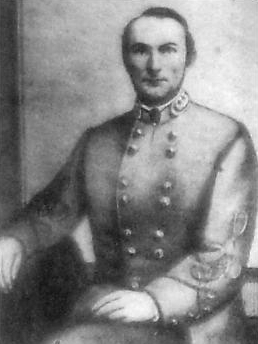
Benjamin Jefferson Hill was a Confederate States Army brigadier general during the American Civil War. Before the war, he was a merchant and served in the Tennessee Senate. After the war, he was a merchant, lawyer and president of the McMinnville and Manchester Railroad.
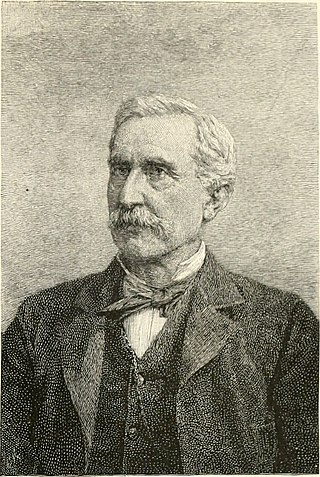
William Whann Mackall was a Seminole Wars veteran, Mexican–American War veteran and Confederate States Army brigadier general during the American Civil War. He was a United States Army officer for 24 years before he resigned his commission in order to join the Confederate Army. After the Civil War, he was a farmer in Fairfax County, Virginia.

Young Marshall Moody was a Confederate States Army officer who was promoted to brigadier general near the end of the American Civil War. He was a teacher, merchant, and circuit court clerk in Marengo County, Alabama, before the war. He died from yellow fever during a business trip to New Orleans, Louisiana, on September 18, 1866.

Patrick Theodore Moore was an Irish-born Confederate States Army brigadier general during the American Civil War. As colonel leading the 1st Virginia Infantry Regiment, he was severely wounded at the Battle of Blackburn's Ford on July 18, 1861, and was incapacitated for further field service. Thereafter, he served as an aide-de-camp, first to General Joseph E. Johnston and then to Lieutenant General James Longstreet, a judge advocate general on court martial duty and a brigade commander of Virginia Reserves in the Department of Richmond. He was a merchant and Virginia militia officer before the war and an insurance agent after the conflict.

William Flank Perry was a Confederate States Army brigadier general during the American Civil War. Before the war, he was a self-taught teacher and lawyer, but never practiced law. Perry was elected Alabama's first superintendent of public education and was twice re-elected. He was president of East Alabama Female College at Tuskegee, Alabama, between 1858 and 1862. He joined the 44th Alabama Infantry Regiment as a private but quickly was promoted to major, then colonel. After exercising brigade command for almost nine months in 1864 and early 1865, Perry was promoted to brigadier general near the end of the war. After returning to Alabama and working as a planter for two years, he moved to Kentucky, where he resumed teaching. For many years, he was professor of English and philosophy at Ogden College, Bowling Green, Kentucky.
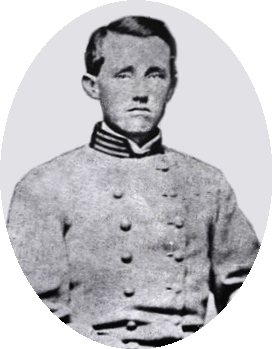
John Caldwell Calhoun Sanders was one of the Confederate States Army's youngest brigadier generals during the American Civil War. He was killed in the Battle of Globe Tavern along the Weldon Railroad during the Siege of Petersburg, Virginia on August 21, 1864.

James Phillip Simms was a Confederate States Army brigadier general during the American Civil War. He was a lawyer in Covington, Georgia, before and after the war. He served two non-consecutive terms in the Georgia legislature after the war.

Clement Hoffman Stevens was a Confederate States Army brigadier general during the American Civil War. He designed and constructed the iron-clad battery on Morris Island at the mouth of Charleston Harbor which was used in the bombardment of Fort Sumter at the outbreak of the Civil War. He was killed in action at the Battle of Peachtree Creek during the Atlanta Campaign.
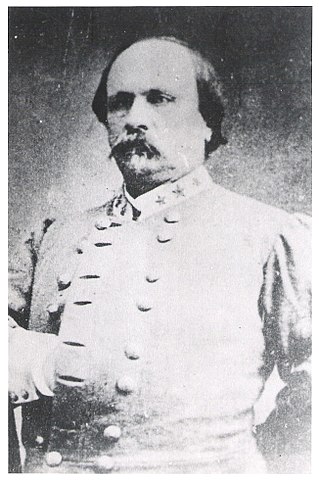
William Henry Wallace was a Confederate States Army brigadier general during the American Civil War. Before the Civil War, he was a planter, newspaper publisher, lawyer and South Carolina legislator in 1860 who supported the state calling a secession convention. He served in the Eastern Theater of the American Civil War, including service as a brigade commander in the Army of Northern Virginia. After the Civil War, he was a lawyer, planter, South Carolina legislator and circuit judge.

David Addison Weisiger was a Confederate States Army brigadier general during the American Civil War. Weisiger served as a second lieutenant in the 1st Virginia Volunteers, an infantry regiment, during the Mexican–American War. After the war, he became a leading businessman in Petersburg, Virginia. Between 1853 and 1860, he served in the 39th Virginia Militia Regiment, rising from captain to colonel. After the Civil War, he was a bank cashier at Petersburg, Virginia and a businessman at Richmond, Virginia.

Claudius Charles Wilson was a Confederate States Army colonel and brigade commander during the American Civil War. Wilson's promotion to brigadier general on November 16, 1863, was confirmed posthumously. Wilson was a lawyer and U.S. Solicitor general for eastern Georgia before the Civil War. Wilson died of a fever while in camp at Ringgold, Georgia, on November 26, 1863.
